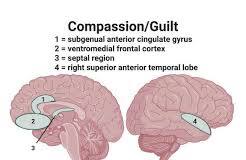The Concept of Morality: Understanding Ethics and Values
Morality is a fundamental aspect of human behaviour that guides our actions, decisions, and interactions with others. It encompasses the principles, values, and beliefs that shape our sense of right and wrong. In essence, morality serves as a compass that helps us navigate the complexities of life.
At its core, morality is deeply intertwined with ethics – the philosophical study of moral values and rules. While ethics provides a framework for evaluating the moral implications of our choices, morality is the internal code that influences our behaviour based on those evaluations.
Throughout history, various philosophical traditions and religious teachings have sought to define and elucidate the concept of morality. From Aristotle’s virtue ethics to Kant’s categorical imperative, different schools of thought offer diverse perspectives on what constitutes moral behaviour.
One key aspect of morality is its subjective nature. What one person considers morally acceptable may differ from another’s perspective. Cultural norms, personal experiences, and upbringing all play a role in shaping an individual’s moral compass.
Despite these differences, certain universal principles often underpin moral systems across societies. Concepts such as honesty, compassion, fairness, and respect for others are commonly valued as virtues that contribute to a harmonious coexistence.
However, moral dilemmas can arise when these principles come into conflict or when circumstances challenge our preconceived notions of right and wrong. In such instances, individuals may grapple with ethical decisions that require careful consideration and reflection.
Ultimately, exploring the concept of morality invites us to engage in profound introspection about our values and beliefs. By examining the foundations of our moral convictions, we can strive towards greater self-awareness and ethical integrity in our actions.
Nine Essential Tips for Upholding Morality and Integrity
- Treat others with kindness and respect.
- Be honest in your words and actions.
- Take responsibility for your mistakes.
- Show empathy towards others’ feelings and experiences.
- Respect diversity and treat everyone equally.
- ‘Do unto others as you would have them do unto you.’
- ‘Actions speak louder than words.’ Show integrity through your behaviour.
- ‘Listen to understand, not just to respond.’ Practice active listening in conversations.
- ‘Stand up for what is right, even when it is difficult.’ Uphold moral principles in challenging situations.
Treat others with kindness and respect.
Treasuring the principle of treating others with kindness and respect is a cornerstone of moral behaviour. By embodying these values in our interactions, we cultivate a culture of empathy and understanding that fosters harmonious relationships and mutual support. Demonstrating kindness and respect towards others not only reflects positively on our character but also contributes to creating a more compassionate and inclusive society where everyone feels valued and appreciated. Embracing this tip on morality encourages us to uphold the dignity of every individual, promoting a sense of unity and goodwill in our communities.
Be honest in your words and actions.
Embracing honesty in both words and actions is a cornerstone of morality that reflects integrity and sincerity. By upholding the value of truthfulness, individuals demonstrate respect for others and cultivate trust in their relationships. Being honest not only fosters transparency and authenticity but also contributes to a sense of moral responsibility towards oneself and those around us. Upholding this principle in daily interactions promotes ethical conduct and reinforces the importance of integrity as a guiding principle in navigating life’s complexities.
Take responsibility for your mistakes.
Taking responsibility for your mistakes is a crucial aspect of morality that demonstrates integrity and accountability. Acknowledging and owning up to errors not only shows humility but also reflects a commitment to learning and growth. By accepting responsibility for our actions, we uphold the values of honesty and transparency, fostering trust and respect in our relationships with others. Embracing accountability for mistakes is an essential step towards personal development and ethical behaviour, shaping us into individuals who strive to rectify errors and make amends where necessary.
Show empathy towards others’ feelings and experiences.
Showing empathy towards others’ feelings and experiences is a cornerstone of morality that fosters understanding and compassion in our interactions. By putting ourselves in someone else’s shoes and acknowledging their emotions and perspectives, we demonstrate a genuine concern for their well-being and demonstrate respect for their humanity. Empathy not only strengthens our connections with others but also promotes a sense of unity and mutual support within our communities. In embracing empathy as a guiding principle, we contribute to creating a more empathetic and morally conscious society where kindness and consideration prevail.
Respect diversity and treat everyone equally.
Respecting diversity and treating everyone equally is a fundamental principle of morality that underscores the importance of acknowledging and embracing the unique differences among individuals. By valuing diversity, we cultivate a culture of inclusivity and mutual respect, recognising the richness that different perspectives, backgrounds, and experiences bring to our interactions. Upholding this principle not only fosters a sense of belonging and acceptance but also contributes to building a more equitable and harmonious society where every individual is valued for who they are. Embracing diversity in all its forms reflects a commitment to fairness, empathy, and understanding, laying the foundation for a more compassionate and cohesive community.
‘Do unto others as you would have them do unto you.’
The principle of ‘Do unto others as you would have them do unto you’ encapsulates the essence of reciprocity and empathy in moral conduct. By treating others with the same kindness, respect, and consideration that we desire for ourselves, we cultivate a sense of mutual understanding and compassion. This golden rule serves as a guiding light for ethical behaviour, reminding us to acknowledge the inherent dignity and worth of every individual in our interactions and decision-making processes.
‘Actions speak louder than words.’ Show integrity through your behaviour.
In the realm of morality, the age-old adage ‘Actions speak louder than words’ holds significant truth. Demonstrating integrity through one’s behaviour is a powerful testament to one’s ethical values and principles. While words can convey intentions and ideals, it is our actions that truly reflect the depth of our moral character. By aligning our behaviour with our professed beliefs, we not only uphold a sense of authenticity but also inspire trust and respect in those around us. Consistency between what we say and what we do is essential in building a reputation founded on integrity and ethical conduct.
‘Listen to understand, not just to respond.’ Practice active listening in conversations.
In the realm of morality, a valuable tip to uphold is to “Listen to understand, not just to respond.” By practising active listening in conversations, we demonstrate a genuine willingness to comprehend the perspectives and values of others. This approach fosters empathy, enhances communication, and promotes mutual respect in our interactions. Rather than formulating immediate responses, taking the time to truly grasp someone’s viewpoint allows for meaningful dialogue and encourages a deeper appreciation of diverse moral viewpoints. Embracing this principle enriches our moral compass by nurturing a culture of understanding and open-mindedness.
‘Stand up for what is right, even when it is difficult.’ Uphold moral principles in challenging situations.
In challenging situations, it is crucial to uphold moral principles and stand up for what is right, even when doing so proves difficult. Demonstrating integrity and courage by adhering to ethical values, such as honesty and justice, not only reinforces one’s own moral character but also contributes to a more just and compassionate society. By staying true to our convictions in the face of adversity, we not only demonstrate strength of character but also inspire others to do the same, fostering a culture of accountability and ethical responsibility.




